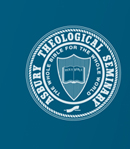Abstract
As our global community is in an unprecedented period of rapid change, missiology, being a study of crossing boundaries, plays a critical pathfinder role in anticipating, participating and mediating the change process, for change itself is a temporal boundary. Failure to do so in the past has left the Church and other groups in a position in which they lag change, and have been marginalized and considered irrelevant. Emergence theory is introduced as a new model, in place of Kuhn's pyramid of causality, to describe how change itself has changed, as networks are now the opinion leaders. As well, Emergence theory informs missiology of avenues by which Christianity can help people anticipate, participate, and in particular, mediate temporal boundaries. John Wesley is offered as a case study of how these avenues helped the Methodist movement navigate a previous wave front of change.
DOI
10.7252/Journal.01.2012S.01
Recommended Citation
Law, Sam
(2012)
"Anticipating Change: Missions and Paradigm Shifts in Emergence,"
The Asbury Journal:
Vol. 67:
No.
1, p. 4-26.
Available at:
https://place.asburyseminary.edu/asburyjournal/vol67/iss1/2
Included in
Missions and World Christianity Commons, Other Religion Commons, Religious Thought, Theology and Philosophy of Religion Commons

